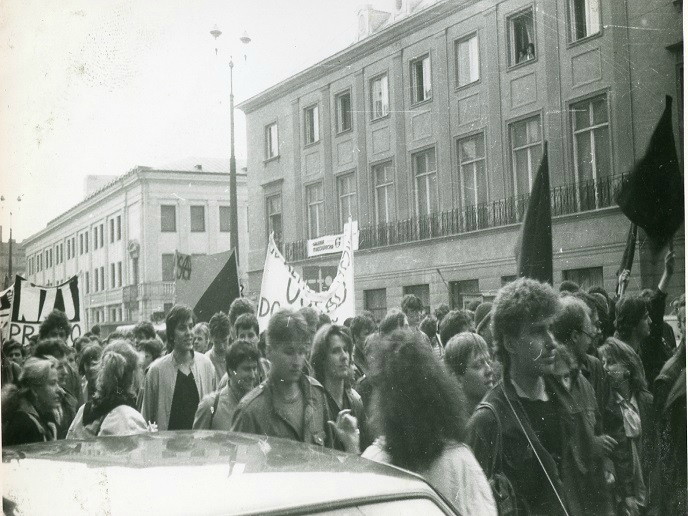Online registry connects materials of counterculture and non-conformism in eastern Europe
The COURAGE(opens in new window) project worked to compile information on as many of the collections and artefacts of the cultural resistance movements and initiatives as possible in an online registry and database – one that is user-friendly and searchable. Sándor Horváth, the primary project coordinator, explains: “We wanted to provide materials which would further research on extremely diverse forms of cultural opposition in eastern Europe.” Cultural opposition has had a very exciting history in the region, but it has rarely been recognised as part of a pan-European culture. A closer look at key achievements COURAGE created a living database in 16 languages – the COURAGE Registry(opens in new window) – that describes and connects collections of materials that constituted forms of counterculture and non-conformism under state socialist authoritarian systems in eastern Europe. The registry has furthered the discovery of collections that have been scattered and hidden because official cultural politics under state socialism prohibited the systematic archiving of dissident culture. “We also created a handbook(opens in new window), which approaches the culture of dissent and made a pioneering attempt to integrate results into educational settings via our learning platform(opens in new window),” adds Horváth. Péter Apor, project coordinator, notes that another achievement “is having persuaded several hundred archives and museums, including private collectors, that it is beneficial for them to join the registry. They collaborated with us to prepare the descriptions, and there are quite a few who made COURAGE a personal cause.” The registry allows archives and museums to map materials similar to their holdings in Europe and launch joint projects across national and cultural borders. Tamás Scheibner, Registry Manager, Dissemination Manager and developer of higher education materials, further notes: “Usually, research results are only slowly incorporated into educational practices and institutions. The COURAGE Learning Platform helps teachers integrate up-to-date knowledge into their courses.” Full narrative course-aids for secondary schools have been prepared, while the interactive curricula for higher education leaves space for individual professors to curate materials from the rich COURAGE database. “What is entirely new is the modular syllabus system invented at the Hungarian Academy of Sciences. It allows professors to modify the default syllabus modules and create and share their own modules with one another,” outlines Scheibner. COURAGE into the future “Leading European policymakers have asked us to expand the registry into a platform that covers not only eastern European but also western European non-conformism,” reports Horváth. This would be beneficial for the European community, and the project hopes to source funding to realise this plan. “We actively seek collaborative partners from Russia and the United States so that we can help European archives and museums establish partnerships beyond the EU,” adds Horváth. The database also has a lot of potential for investors, particularly in the SME sector. “Art galleries, for example, might greatly benefit from developing a marketplace for eastern European neo-avantgarde art that would also serve museums interested in raising funds for new acquisitions and improving conditions for preserving and exhibiting their materials,” notes Horváth. Such relationships would help sustain high-quality research in the humanities, and “investors are welcome to approach us.” A Euronews video(opens in new window) is available for further information.







